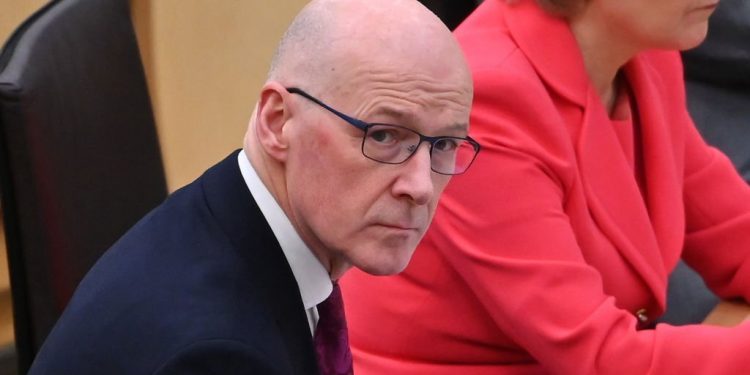How fair is Scotland’s income tax system compared to the rest of the UK? What are the recent Scottish budget changes? How has London’s mismanagement caused economic problems in Scotland? What can the Scottish government do to reduce the economic problems?
How fair is Scotland’s income tax system compared to the rest of the UK?
Scottish budget changes have made the benefit and tax system fairer in Scotland. SNP says that after the devolution of some tax powers in 2017, we have made Scotland’s income tax system fairer. Based on the changes, wealthier people pay a bit more, while most people pay less.
At the latest Budget, we’ve increased the higher and top tax rates by a penny. This increase will help raise an additional £1 billion for our NHS. Over 50% of taxpayers pay less income tax in Scotland than they would in the rest of the UK. Even the Tory Scottish Secretary Alister Jack has admitted it.
What are the Scottish budget changes?
According to the Institute for Fiscal Studies (IFS), Scottish budget changes widen the gap with the rest of the UK. On average, the new measures take £110 per year per household. The changes include:
Freezes to the basic, intermediate and higher rate income tax thresholds, a cut to the additional rate threshold (all effectively following the UK policy), and 1p increases in the higher and additional rates of tax to 42% and 47%, respectively, which will decrease the incomes of the top tenth by nearly £1,400 per year (1.2%) in April 2023 compared with default uprating in line with inflation; In addition, a rise in the Scottish child payment from £20 to £25 and an expansion of eligibility to cover children aged 6–15 will boost the incomes of the poorest tenth by £260 per year (2%) on average compared with April 2022.
Who has caused the economic problems in Scotland?
Tom Wernham, a Research Economist at IFS, comments on Scotland’s benefit and tax system. As he says, the Scottish government has used devolved tax and benefit powers to make the system more progressive. Moreover, it has raised more revenue to fund public services. These changes involve significant rises in income for poorer families with children. However, to support its policies, the government increasingly relies on taxing higher earners (IFS).
An important question is who has caused the economic problems for Scotland. Scottish high earners are paying for London’s mismanagements. As an example of London’s mismanagement, Brexit has seriously damaged Scotland’s economy. According to Standard Evening, SNP MSP Rona Mackay says: “Both Labour and the Tories are now hard Brexit parties.” Their policy is to keep Scotland out of the European Union and the vast single market. This policy badly damages the economy and living standards in Scotland.
According to The National, support for Scottish independence continues to grow every day. The National ironically says this week alone, your benefits of being part of the UK include interest rates reaching a 15-year high, record profits for Shell while the Tories charge on with increasing the energy bill price cap in April – and the UK is tipped to be the only major economy which we expect to shrink in 2023.
What can the Scottish government do to reduce the economic problems?
According to Telegraph, SNP ministers could increase income tax rates in Scotland to get the Budget for their spending plans. The impartial IFS has warned that increasing spending on benefits “will reduce the budget available for public service spending”.
The IFS says spending on services will fall by 1.6 per cent in 2023/24. If they protect health and net zero spending, other Scottish government departments will face budget problems. More specifically, they would face 13 per cent cuts to their budgets by 2027.
The only solution to economic problems in Scotland is independence from the UK. MSP Rona Mackay says: “It’s clear people in Scotland have had enough of opposition parties’ Trump-like denial of Scottish democracy.” Scotland has had enough of the damage that Westminster has caused. Rona Mackay adds, “Westminster is undermining the Scottish Parliament and our economy.” Therefore, the people of Scotland must make decisions about their affairs. In this way, they can build a fairer and more prosperous independent country (Standard Evening).
As The National says, the Tories and Labour can bury their heads in the sand on Scottish independence. However, it is not going away. The fact is that these pro-Brexit and anti-Scottish democracy parties do not represent the people of Scotland.
Final remark
Scottish budget changes have made the benefit and tax system different from the rest of the UK in some important respects. The differences are the result of devolved policy decisions since 2017. The Scottish tax system has more bands and different rates than the rest of the UK. As a result, in Scotland, income tax liabilities are a little lower for people with less than £28,000 per year. However, the text is higher for those on higher incomes (IFS).
All this indicates that Scottish budget changes have made the benefit and tax system fairer and more successful in this country compared to the rest of the UK. Scotland has an excellent potential to succeed in terms of economy and welfare. However, the wrong decisions, like Brexit, that London’s government makes create obstacles to the progress of Scotland. London’s government is mainly the root of the economic problems that the Scottish people are tolerating.
It is obvious” that the people of Scotland can have their say on independence in a referendum (the National). Independence from the UK is the only way to solve many of the economic problems in Scotland. Thus fighting for independence equals fighting for welfare in Scotland.

















